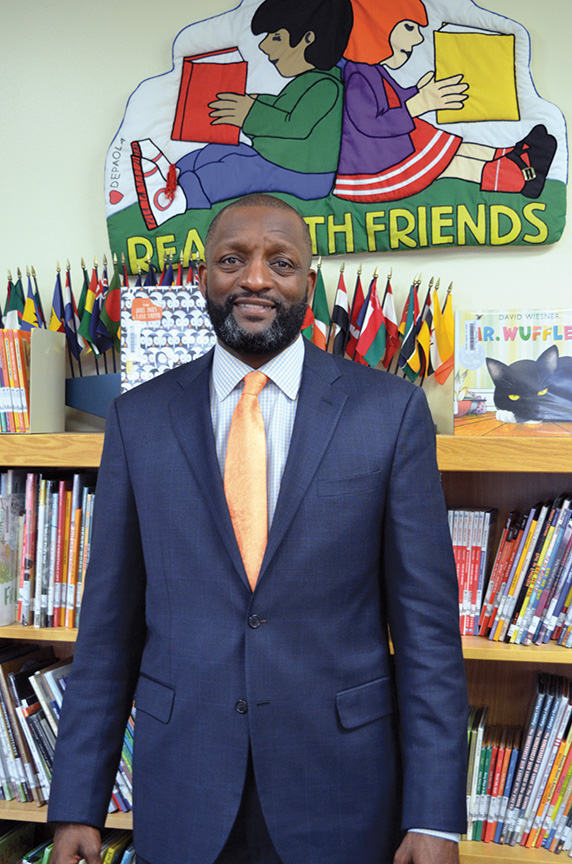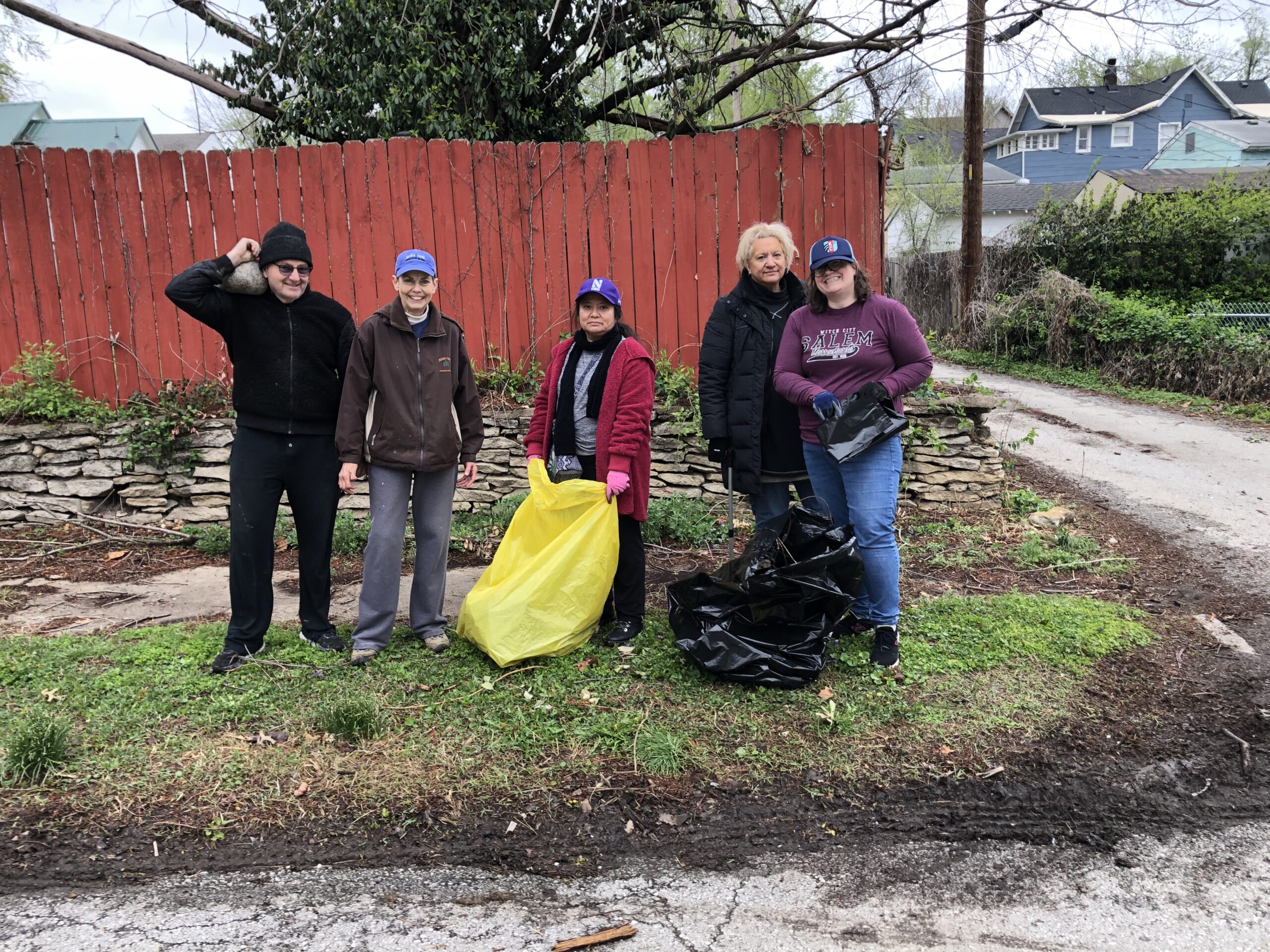
As schools have been ordered to remain closed for the rest of the school year, the Kansas City Public School District continues to work tirelessly to find new ways to serve their students.
From food service, digital learning, WiFi hot spots, to virtual check-ins with families and students, KCPS Superintendent Dr. Mark Bedell said his team is doing everything they can to continue to serve their kids.
Food Service
Kansas City Public Schools is a 100% free and reduced lunch district, which means most students accessed two meals a day from school.
As many families have lost jobs, face financial constraints, and have children home all day who need food, this can perpetuate food insecurity for families.
KCPS has stepped up to meet this need by offering free sack lunches to KCPS students.
Students can access curbside pick-up of meals at the following times and locations:
10 a.m. to 2 p.m. Tuesdays & Thursdays
- Northeast Middle School (4904 Independence Ave.)
- East High School (1924 Van Brunt Blvd.)
- Martin Luther King, Jr. Elementary School (4848 Woodland Ave.)
Visit www.kcpublicschools.org/meals for a list of additional food resources for families in the Kansas City community.
Dr. Bedell said KCPS will continue to serve meals to students until June 26th, which is when summer school would have let out.
“Then we will see what happens from there if there is a need to serve any further, but we always have served through the end of summer school,” said Dr. Bedell.
Digital Learning
KCPS students have transitioned to fully digital classwork as face-to-face class instruction is no longer an option.
This, Dr. Bedell said, presents a new set of challenges as many students do not have access to equipment such as laptops, home computers, or internet.
KCPS has begun device distribution, offering families laptops and WiFi hotspots.
“The biggest issue we had was not having the WiFi connectivity in place,” said Dr. Bedell. “It doesn’t serve families well to give them a laptop or a device and they don’t have internet access.”
He said KCPS has received a $600,000 grant from SchoolSmartKC that has allowed them to obtain roughly 1,000 hotspots that they will deploy out to the community.
For homeless students, Dr. Bedell said they are working to purchase WiFi-equipped cell phones to use.
“Homeless kids can live from one shelter to another so giving them connectivity through a mobile cell phone device will allow them to still have access to their teachers,” he said. “We are ordering enough to cover our homeless students.”
KCPS is also testing an opportunity to utilize school buses as WiFi spots and strategically place them in WiFi deserts.
“We are trying to make a determination how far that will penetrate into those homes so that we can use our school buses as an opportunity and asset to help us with the connectivity,” he said. “A lot of the stuff we are doing right now, in essence, is kind of in a pilot phase, because everything was unexpected.”
High School seniors and graduation
As graduation ceremonies and proms have been canceled, many parents have been concerned about how their senior students will remain on track to graduate successfully.
Dr. Bedell said there have been several things put in place to ensure the graduation of KCPS seniors and several requirements have been removed.
All district graduation requirements for the Class of 2020 have been waived, including public service volunteer hours, the completion of the FAFSA and visiting one college. Missouri’s Department of Elementary and Secondary Education has waived all state requirements for graduation except the necessary 24 credits.
“At this point, we were on track, before this happened, to fall between 75 and 78 percent graduation rate based on the system that we built,” said Dr. Bedell. “We were going to potentially have record-high graduation rates in the first place prior to this pandemic taking place, so we were feeling really good about the work we were doing with our seniors. There are a lot of things that have been relaxed and what this is going to do now is, we could potentially crack that 78 percent mark.”
Ultimately, Dr. Bedell said the fourth quarter will not harm any of the seniors and can only help them.
“We are not going to hurt any of our seniors,” he said. “If they were passing their courses in everything at the end of the third quarter, they are going to be held harmless because we are not going to let what they are going through now in the fourth quarter hurt them. The only thing that can happen now is that they could get help.”
Those who needed additional help during the fourth quarter to graduate are working with their teachers on assignments to help them meet their commencement requirements and get their high school diploma.
“We feel really good about our plan with the seniors,” he said. “We have got a solid plan in place.”
APR scores for KCPS
According to the Missouri Department of Elementary and Secondary Education (DESE), because no assessment data will be available and because data used in certain scoring criteria will be lacking, such as attendance and testing scores, no APR score will be produced for 2020.
Decisions on accreditation will also be delayed until the next APR is produced.
“Everything is suspended,” said Dr. Bedell. “It really hurts because we felt that we knew what hurt us last year, which was attendance. Getting those zero points in attendance cost us our accreditation. Now, everything is on hold.”
Socio-economic disparities and disenfranchisement
As KCPS works to serve students and families in many ways, what does this reveal about the district? What has been working well and what needs improvement?
“What’s working, from my perspective, is that this is a community that truly cares,” said Dr. Bedell. “When we could not serve food on that one day, we had so much support from so many people. I felt there was a lot of community support.”
Dr. Bedell also highlighted the efforts from the entire KCPS staff.
“The resiliency of our educators and seeing what these people in our organization are doing and how hard they are working despite the unknown and despite the fear. These teachers are doing some phenomenal things. They still are working and reaching out to our kids and educating them while still having to be parents. That’s hard.”
How well they are doing it, he said, will not be fully known until months down the road.
“It’s not perfect and won’t be perfect. We won’t know how perfect we were until you start to look back in retrospect and you get articles that say ‘people who did ABC, and D, those are the people who are, right now, are on the right side, and people who did it this way, those are the folks who are struggling still.’ I do feel good that things we are doing right now are going to put us on the right side of history when it’s said and done.”
What the pandemic has done, he said, is shed light on the disparities that are in the foundation of the city.
“The way that school has been designed based on the system that has been built, hasn’t worked in many cases for disenfranchised families. We have an opportunity to undo, in my opinion, some of the wrongs, in terms of how education was used as a weapon against certain demographics of people. We have an opportunity to do some of those tenants and variables that have, in essence, continually crippled urban school districts. I’m not interested in going back to the norm because the norm didn’t work to the extent that I believe it should be working for every single kid. As a district that services 100 percent free and reduced lunch families, the system of structural racism shows itself. What it does is it lets people know that income matters and when you do not have income, it impacts housing ability, it impacts stability, it impacts health, and the thing that you’re seeing right now with these numbers is that the area where you have your highest poverty rate are the areas where the virus is attacking. The most vulnerable component of our communities is generally looking at that third and fifth district. Ultimately, that tells you a lot about economic development and what it means for these communities. It tells you a lot about affordable housing. It tells you a lot about people having the ability to be self-employed and have generational wealth, it tells you a lot about things that have, in essence, been done over a period of time and people can no longer turn their back to it. How are we navigating through an equity lens during this pandemic?”
The divide in Kansas City, he said, is clearly defined.
“One of the things I’ve learned, more than ever, is that we still have the divide here in Kansas City with the haves and the have-nots. When you think about the east of Troost communities, that’s where most of your wifi deserts are, most of your grocery store deserts are, there are limited fun activities like skating rinks and amusement parks, no homeownership. It puts it out there that we have a lot of work to do. It’s one thing for the community to say we care, but it’s another thing to say ‘how do we eliminate tenets that structural racism has built in the foundation in this city? One way you can do that is figure out a way that our families in those communities and neighborhoods have WiFi access. Work with Sprint, work with Google Fiber, get towers up in these areas and make sure these families have connectivity and you will have eliminated one major barrier. If the systems are going to be moving more toward a digital and virtual platform, you don’t want to perpetuate the achievement gap and the disparities. Instead of doing a lot of small projects, do a big project that’s going to be sustainable.”
As KCPS and the city continue to navigate through the pandemic, Dr. Bedelle said there is still hope.
“In the midst of adversity, in the midst of being in uncharted territory and traveling into the unknown, while we may experience various levels of fear and a lack of understanding, there is optimism and there is hope and there is an opportunity to come out better off in how we provide service to those we are responsible to serve. That extends beyond the educational entities. As a city, we have an opportunity here to undo a lot of the wrongs and we know what those wrongs are and we no longer can turn our head as if these things have never happened because the disparities are much more glaring now than ever before. So what do we do? How do we come out of this on the right side of history?”
Resources:
Food and meals: https://www.kcpublicschools.org/Page/7843
Latest COVID-19 updates from KCPS: https://www.kcpublicschools.org/Page/7950
Distance learning information: https://www.kcpublicschools.org/Page/8006
Family Resources: https://www.kcpublicschools.org/Page/7948
Family social and emotional support: https://www.kcpublicschools.org/Page/7962















